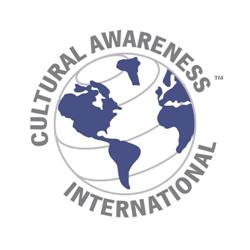 According to the Harvard Business Review, a Global Mindset comprises three components:
According to the Harvard Business Review, a Global Mindset comprises three components:
Intellectual capital: Global business savvy, cognitive complexity, cosmopolitan outlook
Psychological capital: Passion for diversity, a quest for adventure, self-assurance
Social capital: Intercultural empathy, interpersonal impact, diplomacy
Forward-thinking executives across industries understand the need to create polycultural understanding to prosper in international business. Leaders and organizations who cultivate and champion a Global Mindset are more successful than those who do not. Those who seek to understand a culture, history, sociopolitical, and economic systems in different countries build bridges that extend beyond the business realm.
Japan: Why a Global Mindset is Essential
Japan is a modern society deeply linked to its more than five-thousand-year-old past, and yet at the vanguard of innovation in the fields of technology, healthcare, and science; this duality is intrinsic to many features of Japanese life. Ancient temples dot futuristic skylines. Modernity dances with antiquity and age-old customs. Furthermore, the Japanese genuinely venerate their cultural legacy, heritage, and elders. Both Karoshi, death by overwork, and Ikigai the idea of “happiness in living,” are part of the fabric of Japan.
Perhaps no other country’s geography, geology, and topography have influenced their culture and society as much as Japan’s has. The island nation lies off the Asian Mainland the closest point of contact is 120 miles away. Great Britain, for example, is 21 miles away from continental Europe at its narrowest point, The Strait of Dover. Moreover, for over 200 years Japan instituted Sakoku, a policy of national isolation.
 Mountainous terrain, frequent earthquakes, typhoons, and vulnerability to tidal waves and tsunamis, all reinforce essential tenets such as harmony (Wa), form (Kata), role (Bun) and face (Mentsu) that have been shaped and honed across generations. In addition, 80 percent of the population lives on 20 percent of the land. Therefore, these concepts are critical to the fundamental values in Japanese society. They work in concert with overall group dynamic and health of a nation-shaping its collectivist identity and conflict-averse attributes. Consequently, the way that individualism expresses itself is entirely different than in traditional western ways. Hierarchy, indirect communication, and gender roles are central aspects of Japanese society. Understanding and appreciating these cultural nuances will enrich one’s life in numerous ways. Additionally, this cultural insight will enable and empower one to thrive in business and beyond by developing a Global Mindset.
Mountainous terrain, frequent earthquakes, typhoons, and vulnerability to tidal waves and tsunamis, all reinforce essential tenets such as harmony (Wa), form (Kata), role (Bun) and face (Mentsu) that have been shaped and honed across generations. In addition, 80 percent of the population lives on 20 percent of the land. Therefore, these concepts are critical to the fundamental values in Japanese society. They work in concert with overall group dynamic and health of a nation-shaping its collectivist identity and conflict-averse attributes. Consequently, the way that individualism expresses itself is entirely different than in traditional western ways. Hierarchy, indirect communication, and gender roles are central aspects of Japanese society. Understanding and appreciating these cultural nuances will enrich one’s life in numerous ways. Additionally, this cultural insight will enable and empower one to thrive in business and beyond by developing a Global Mindset.
So, let’s explore one critical concept in Japan, Mentsu.
Mentsu: Types of Face
 The term “Face” refers to one’s sense of dignity or prestige in social circumstances. Found in various academic fields ranging from sociology to psychology, political science, semantics, and sociolinguistics, the Asian concept of “Face” directly correlates to one’s reputation. Hence, face bears heavily on one’s trustworthiness and credibility. There are many ways to Lose, Give, and Save Face.
The term “Face” refers to one’s sense of dignity or prestige in social circumstances. Found in various academic fields ranging from sociology to psychology, political science, semantics, and sociolinguistics, the Asian concept of “Face” directly correlates to one’s reputation. Hence, face bears heavily on one’s trustworthiness and credibility. There are many ways to Lose, Give, and Save Face.
Giving Face-is showing proper respect, treating people according to title and seniority, or giving compliments.
Losing Face- causes embarrassment, by criticizing others or having weaknesses exposed in public.
Saving Face-prevents embarrassment by avoiding eye contact and agreeing to compromise.
“Face” also relates to Honne and Tatamae. Mostly, these two words describe the duality of how one feels (Honne) and how one acts and behaves publicly (Tatamae). In other words, one’s ideas, opinions, and beliefs are private and must not conflict or damage how others perceive them.
When one seeks to develop awareness and familiarize oneself with culture, this awareness allows one insight without judgment. This knowledge empowers one and gives one the proper tools to maneuver and adapt to a culture foreign to one’s own. And this is what Cultural Awareness International, Inc. (CAI) excels at and specializes in; our innovative and interdisciplinary approach to cross-cultural training is tailored and customized to every individuals’ needs. CAI has extensive knowledge in providing both cross-cultural training and relocation services in Japan.
About CAI 
Cultural Awareness International, Inc. (CAI) has close to three decades of remarkable history working with HR and Business Leaders to create unique, personalized solutions that develop their employee talent to perform skillfully in the global marketplace. A woman and minority, privately owned and operated company, we holistically address organizational needs for global competency development, diversity and inclusion training, intercultural communication and global leadership with flexibility and innovation. Additionally, we provide comprehensive destination services that assist both assignees and their families in relocating to a new home and settling into their new community. Our experience collaborating with global companies across all industries and scope gives us invaluable insight to anticipate and address our clients’ needs. Our solutions target not only the needs of globally mobile individuals and their families but also that of teams and senior leadership. CAI’s expertise, creativity, and agility deliver the best sustainable solutions to hone and enhance the skills of your globally mobile talent.
Find out more here.
*Please note that the complexities of Japanese work culture in particular, and Japanese culture in general, is beyond the scope of this blog. Nonetheless, we do hope to further inform our readers about some general aspects of the Japanese ethos and highlight the importance of a Global Mindset.



